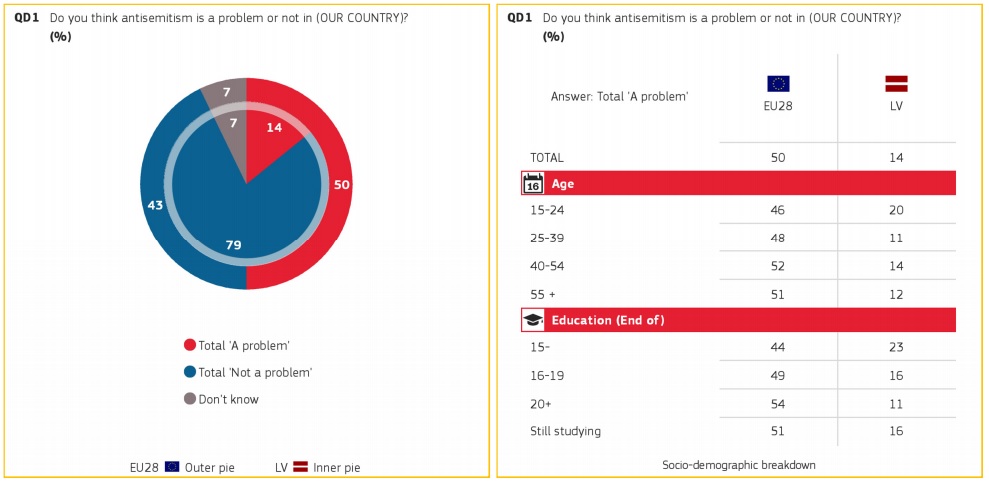According to the findings of the Perceptions of Antisemitism survey, only 14% of Latvian residents believe antisemitism is "a problem" against 50% across the EU as a whole.
Furthermore, only 7% of Latvians think antisemitism has increased over the last 5 years, compared with 36% across the bloc. 18% of Latvians say Holocaust denial is a problem, whereas across the EU the figure is 53%.
Latvians also believe themselves to be better-informed about the history, customs and practices of Latvian Jews than is the case elsewhere. 30% of Latvians say they are well-informed against 27% across the EU. 64% admit they are not well informed, but even this figure is better than the EU figure of 68%.
Expressions of anti-Jewish hostility in the streets or other public places are believed to be a problem by only 11% of the population - the third lowest level in the EU with only Malta (8%) and Estonia (7%) lower. It is a similar story when it comes to both physical attacks against Jews and antisemitism in politics, with Latvia, Malta and Estonia the three countries where it is least likely to be considered a problem.
Lithuanians believe themselves to have the best knowledge among EU member states of Jewish culture and customs with 46% saying they are well-informed. Throughout history Vilnius has been an important Jewish center.
Meanwhile Estonians believe they have a smaller problem with antisemitism than any other EU member state, with just 6% of those asked saying it was a problem.
You can explore the full findings at the Eurobarometer website.
The Eurobarometer survey was carried out face-to-face from 4 to 20 December 2018 in the 28 EU Member States on the Perceptions of antisemitism. In this survey, 27,643 respondents were asked about their perceptions, of which 1,002 were in Latvia.
Some of the findings are at variance with another recent survey carried out by the European Union Agency for Fundamental Rights (FRA) which said that antisemitism remains a persistent problem across the EU. However, the FRA survey received only a very low response in Latvia which "limits the scope for comparisons between Latvia and the other survey countries," the FRA said.




























